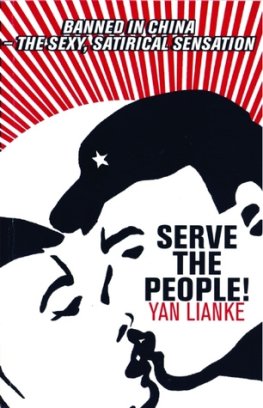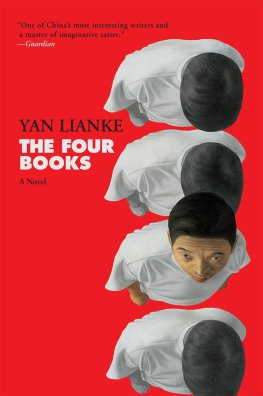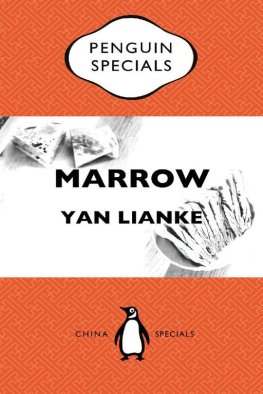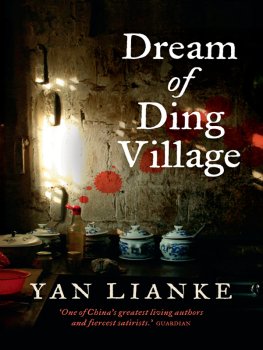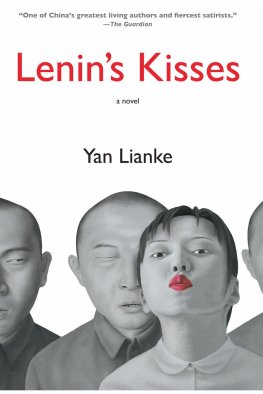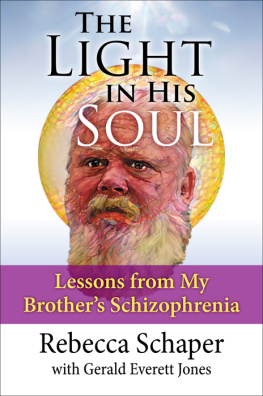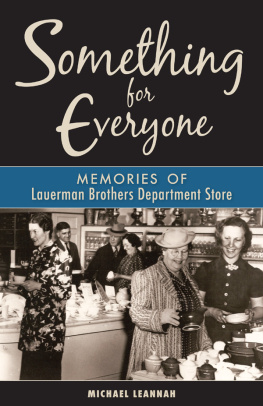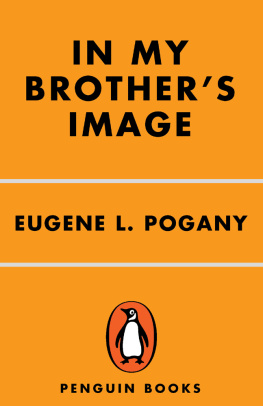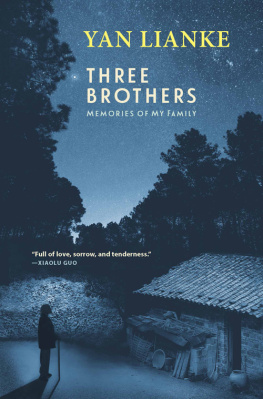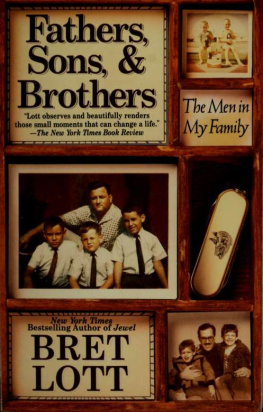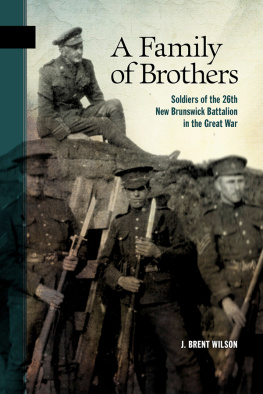Yan Lianke - Three Brothers: Memories of My Family
Here you can read online Yan Lianke - Three Brothers: Memories of My Family full text of the book (entire story) in english for free. Download pdf and epub, get meaning, cover and reviews about this ebook. year: 2020, publisher: The Text Publishing Company, genre: Non-fiction. Description of the work, (preface) as well as reviews are available. Best literature library LitArk.com created for fans of good reading and offers a wide selection of genres:
Romance novel
Science fiction
Adventure
Detective
Science
History
Home and family
Prose
Art
Politics
Computer
Non-fiction
Religion
Business
Children
Humor
Choose a favorite category and find really read worthwhile books. Enjoy immersion in the world of imagination, feel the emotions of the characters or learn something new for yourself, make an fascinating discovery.
- Book:Three Brothers: Memories of My Family
- Author:
- Publisher:The Text Publishing Company
- Genre:
- Year:2020
- Rating:5 / 5
- Favourites:Add to favourites
- Your mark:
- 100
- 1
- 2
- 3
- 4
- 5
Three Brothers: Memories of My Family: summary, description and annotation
We offer to read an annotation, description, summary or preface (depends on what the author of the book "Three Brothers: Memories of My Family" wrote himself). If you haven't found the necessary information about the book — write in the comments, we will try to find it.
Three Brothers: Memories of My Family — read online for free the complete book (whole text) full work
Below is the text of the book, divided by pages. System saving the place of the last page read, allows you to conveniently read the book "Three Brothers: Memories of My Family" online for free, without having to search again every time where you left off. Put a bookmark, and you can go to the page where you finished reading at any time.
Font size:
Interval:
Bookmark:

Issues of language and kinship are at the heart of Yan Liankes Three Brothers. In many respects, kinship terminology is much more granular in Chinese than in English. For instance, there is no single term in Chinese for male sibling that would be equivalent to the English word brother. Instead, there are different Chinese terms depending on whether the individual in question is older or younger than the speaker (e.g., gege for elder brother and didi for younger brother), and furthermore, it is also common to specify the siblings ages relative to one another (e.g., dage, erge, and sange, to refer to someones eldest brother, second elder brother, and third elder brother, respectively). A similar point can be made with respect to the siblings from ones parents generation: where English, for instance, uses a single term (uncle) to refer to all of a mothers or fathers male siblings, in Chinese there are different terms depending on whether the individual in question is one of the fathers elder brothers, one of his younger brothers, one of the mothers elder brothers, or one of her younger brothers. In addition to this fourfold differentiation, it is also common to specify the uncles ages relative to one another (e.g., dabo, erbo, and sanbo, to refer to the fathers eldest brother, second elder brother, and third elder brother, respectively).
At the same time, however, there are also other respects in which Chinese tends to elide kinship distinctions that are usually specified in English. For instance, it is common for Chinese to consider multiple different generations as belonging to the same large family (such as in the traditional ideal of wudai tongtang, or five generations under one roof), and consequently it is common to refer to extended relatives as though they were closer than they actually are. For instance, Yan Liankes memoir technically distinguishes between the authors immediate siblings and his cousins, but at various points the male cousins are instead referred to simply as gege or didi (literally, elder brother and younger brother). Similarly, the original Chinese title of the work, which could be translated literally as Me and My Fathers Generation, refers to the authors father and three other men from his generationand of these three other men, two are the fathers brothers, while the third is actually the fathers (paternal-side) cousin. In English, we would call the first two men uncles and would call the third something else (technically, he would be first cousin once removed). In Chinese, however, the relevant terminological distinction is not between the fathers brother and his cousin (the narrator refers to both of them as shu), but rather it is between the uncle who is older than the father (and whom the narrator refers to as dabo [literally, eldest uncle on the fathers side]), and the two uncles who are younger than the father (sanshu and sishu [literally, third eldest younger uncle on the fathers side and fourth eldest younger uncle on the fathers side]).
In translating Three Brothers, I have approached these various terminological challenges in slightly different ways. On one hand, Ive followed the Chinese convention of embedding a reference to birth order into terms for siblings, uncles, aunts, and so forth, although one would rarely do so in English. On the other hand, where the volume refers affectionately to the authors cousins as brothers, in my translation I have instead followed the English-language convention and referred to them as cousins (to help prevent unnecessary confusion). Apart from this particular adjustment, however, I have generally refrained from adjusting or parsing culturally or historically specific terminology.
The memoir does include numerous parenthetical remarks that add useful contextual informationfor instance, when an ill-informed teacher avers that Henan University might be in the provincial capital of Zhengzhou, this is followed by a parenthetical note specifying that, In fact, its in Kaifeng. In this and every other instance, these parenthetical notes have not been added to the manuscript for the benefit of English-language readers, but rather they were already present in the original Chinese text.
ALSO BY YAN LIANKE
The Day the Sun Died
The Years, Months, Days
The Explosion Chronicles
The Four Books
Lenins Kisses
Dream of Ding Village
Serve the People!
YAN LIANKE was born in 1958 in Henan Province, China. He is the author of numerous novels and short-story collections, including Serve the People!, Dream of Ding Village, Lenins Kisses, The Four Books, The Explosion Chronicles, The Day the Sun Died and The Years, Months, Days. He has been awarded the Hua Zhong World Chinese Literature Prize, the Lao She Literary Award, the Dream of the Red Chamber Award and the Franz Kafka Prize. He has also been shortlisted for the International Man Booker Prize, the Principe de Asturias Prize for Letters, the Independent Foreign Fiction Prize, the FT/Oppenheimer Fund Emerging Voices Award and the Prix Femina tranger. The Day the Sun Died won the Dream of the Red Chamber Award for the Worlds Most Distinguished Novel in Chinese. He lives and writes in Beijing.
CARLOS ROJAS has translated Yan Liankes five most recent books.

In an instant, I finally understood that the function of all the toil and hardship, misfortune and kindness my fathers generation experienced had been to permit them to continue living, to help them secure daily necessities, and to prepare them for the inevitable processes of aging, disease, and death.
On October 1, 2007, as our country was celebrating the National Day holiday, with happiness inundating cities and towns like a raging flood, I received several phone calls urging me to return to my hometown as quickly as possible, as my sixty-nine-year-old Fourth Uncle had abruptly left this world. Hurrying back from Beijing to Song county in Henan province, I realized with a shock that of the four men in my fathers generationwhich included three brothers and a cousinall three brothers had now departed this world, seeking peace and tranquility in another realm.
In the middle of the following night, I knelt down in front of a white spirit tent, keeping vigil over Fourth Uncles coffin. Outside, the moon was bright and the stars were sparse. There was only a light breeze and the trees were still. The entire village seemed to have stopped breathing in response to Fourth Uncles death. In the ensuing stillness, one of my sisters went up to the coffin to replace an incense stick that had burned down. When she returned, she said, with some embarrassment, Brother Lianke, youve written so many books, why dont you write one about our family?
She said, Our fathers generation have now all passed away. Why dont you write about the three brothers?
She said, You can also write about yourselfabout your youth.
I didnt immediately respond. Originally I had felt that my writing was completely unrelated to my family and had no relevance to this corner of the world. But at that moment, I happened to be feeling particularly unhappy, hopeless, and confused about my writing. So I decided I absolutely should write something for themfor my fathers generation as well as my siblings and cousins. It didnt matter if I wrote neither a lot nor particularly well, as long as they knew that I had written something. So I began examining the life and fate of my fathers generation, revisiting my childhood and youth, and researching the historical traces of that period. Finally, I had an epiphany and realized that the function of all the toil and hardship, misfortune and kindness my fathers generation experienced had been to permit them to continue living; to help them secure daily necessities like kindling, rice, oil, and salt; and to prepare them for the inevitable processes of aging, disease, and death. I pondered this for a long time, and ultimately decided to write about how they had lived their lives and how they had confronted death. After careful consideration, I decided that my fathers generation lived like dust in the wind, primarily for the sake of daily necessities, while people today live for the sake of obtaining a piece of land. But who can escape the need to secure daily necessities and to confront aging and disease? Daily necessities and agingfor many of us, these are the forces that are responsible for our arrival to and departure from this world.
Next pageFont size:
Interval:
Bookmark:
Similar books «Three Brothers: Memories of My Family»
Look at similar books to Three Brothers: Memories of My Family. We have selected literature similar in name and meaning in the hope of providing readers with more options to find new, interesting, not yet read works.
Discussion, reviews of the book Three Brothers: Memories of My Family and just readers' own opinions. Leave your comments, write what you think about the work, its meaning or the main characters. Specify what exactly you liked and what you didn't like, and why you think so.


